Understanding the Network Engineer Role
A Network Engineer plays a pivotal role in the IT infrastructure of an organization. They are responsible for designing, implementing, maintaining, and troubleshooting network systems. The primary goal is to ensure seamless and secure data transfer, communication, and access to resources for all users within the network. This role requires a deep understanding of network protocols, hardware, and software, along with problem-solving skills and the ability to work effectively under pressure. A well-crafted cover letter is essential to showcase your qualifications and secure an interview for this critical position. Your cover letter is your first opportunity to make a strong impression on potential employers, making it crucial to present yourself as the ideal candidate for the role.
Key Responsibilities of a Network Engineer
Network Engineers are involved in a variety of tasks, from designing and implementing network infrastructure to ensuring its smooth operation. They are responsible for network security, including firewalls, intrusion detection systems, and access controls. Monitoring network performance, diagnosing and resolving issues, and implementing upgrades are also part of their responsibilities. They configure routers, switches, and other network devices, and maintain network documentation. They also collaborate with other IT staff and vendors to ensure network availability, reliability, and efficiency. Proper documentation and network diagrams are critical. They proactively seek to optimize network performance.
Essential Skills for Network Engineers
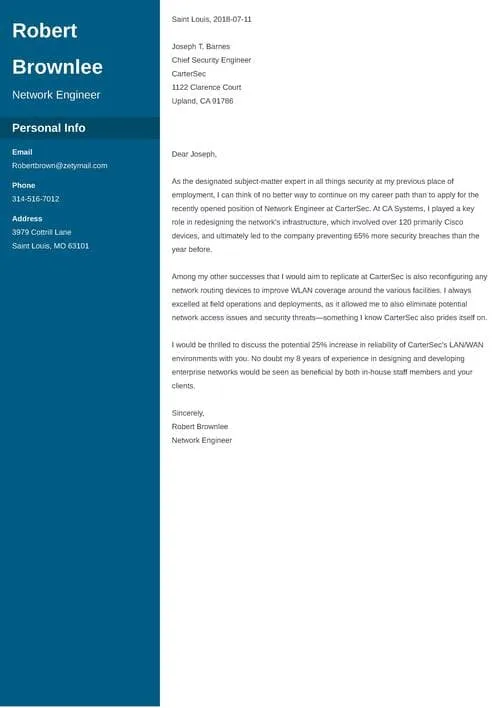
Network engineers require a diverse set of skills to excel in their roles. A strong understanding of network protocols such as TCP/IP, DNS, DHCP, and routing protocols like OSPF and BGP is fundamental. They need to be proficient with network hardware from vendors like Cisco, Juniper, and others. Expertise in network security, including firewalls, VPNs, and intrusion detection, is also crucial. Problem-solving and troubleshooting skills are essential for diagnosing and resolving network issues quickly and efficiently. They should also possess strong communication skills and be able to work collaboratively. Experience with network monitoring tools and virtualization technologies are also valuable assets. The ability to adapt to new technologies and stay updated with industry trends is also a key skill for continuous improvement.
Crafting Your Cover Letter
A well-written cover letter is essential to highlight your qualifications and experience effectively. Your cover letter should be tailored to the specific job and company you’re applying to. It should complement your resume by providing more context and detailing your relevant skills and achievements. The goal is to make a strong first impression and persuade the hiring manager to invite you for an interview. Always proofread and spell-check to make sure that the letter is without errors. Focus on what you can bring to the company, not what you hope to gain.
Header and Contact Information
Begin your cover letter with a professional header. Include your full name, address, phone number, and professional email address. Also, include the date and the hiring manager’s name (if you know it) and the company’s address. This section ensures the employer knows how to contact you. Make sure your contact information is accurate and up-to-date. Use a professional-looking email address, and double-check everything for errors. Your header provides essential information for the hiring manager to reach you quickly and efficiently.
Greeting and Opening Paragraph
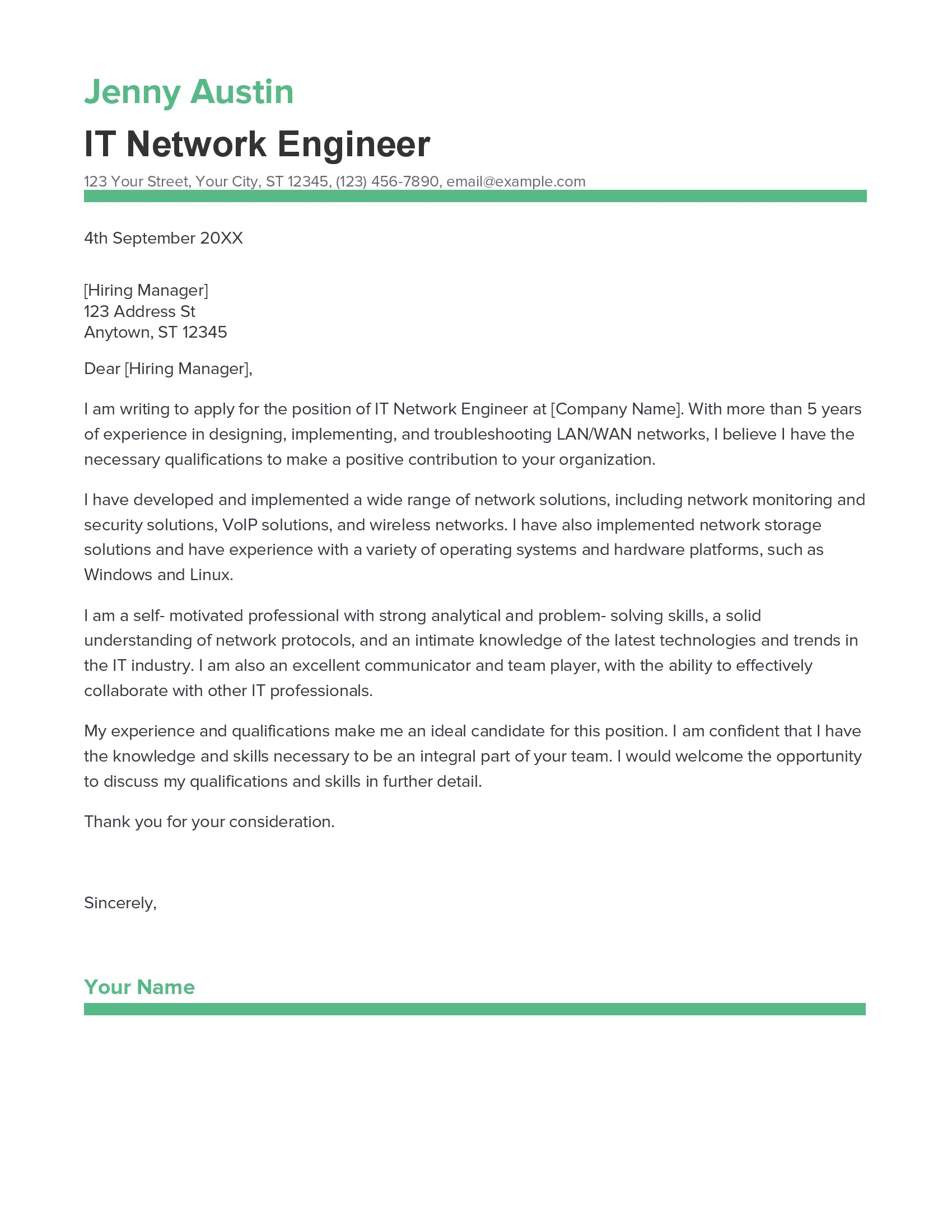
Start with a professional greeting, such as “Dear Mr./Ms. [Last Name],” or “Dear Hiring Manager.” In your opening paragraph, state the position you are applying for and where you saw the job posting. Briefly mention why you are interested in the role and the company. Capture the reader’s attention from the start. Your opening paragraph sets the tone and establishes your enthusiasm. Your goal is to make the reader want to learn more about you and consider your qualifications. Make a positive first impression.
Highlighting Relevant Experience
The body of your cover letter should focus on your relevant experience and skills. Carefully review the job description and identify the key requirements. Provide specific examples of how your experience aligns with those requirements. Use action verbs to describe your accomplishments and responsibilities in previous roles. Show how you have successfully managed projects, troubleshooted issues, or implemented new technologies. The focus should be on how you can contribute to the employer’s goals. Use clear and concise language.
Quantifying Achievements and Skills
Quantify your achievements whenever possible. Use numbers and data to demonstrate the impact of your work. For example, instead of saying “Improved network performance,” say “Improved network performance by 20% by implementing a new QoS strategy.” Quantifying your achievements provides concrete evidence of your skills and abilities. Use metrics to showcase your accomplishments, such as the amount of time saved, cost reductions achieved, or projects completed on time and within budget. Metrics showcase your skills to the hiring manager.
Showcasing Technical Expertise
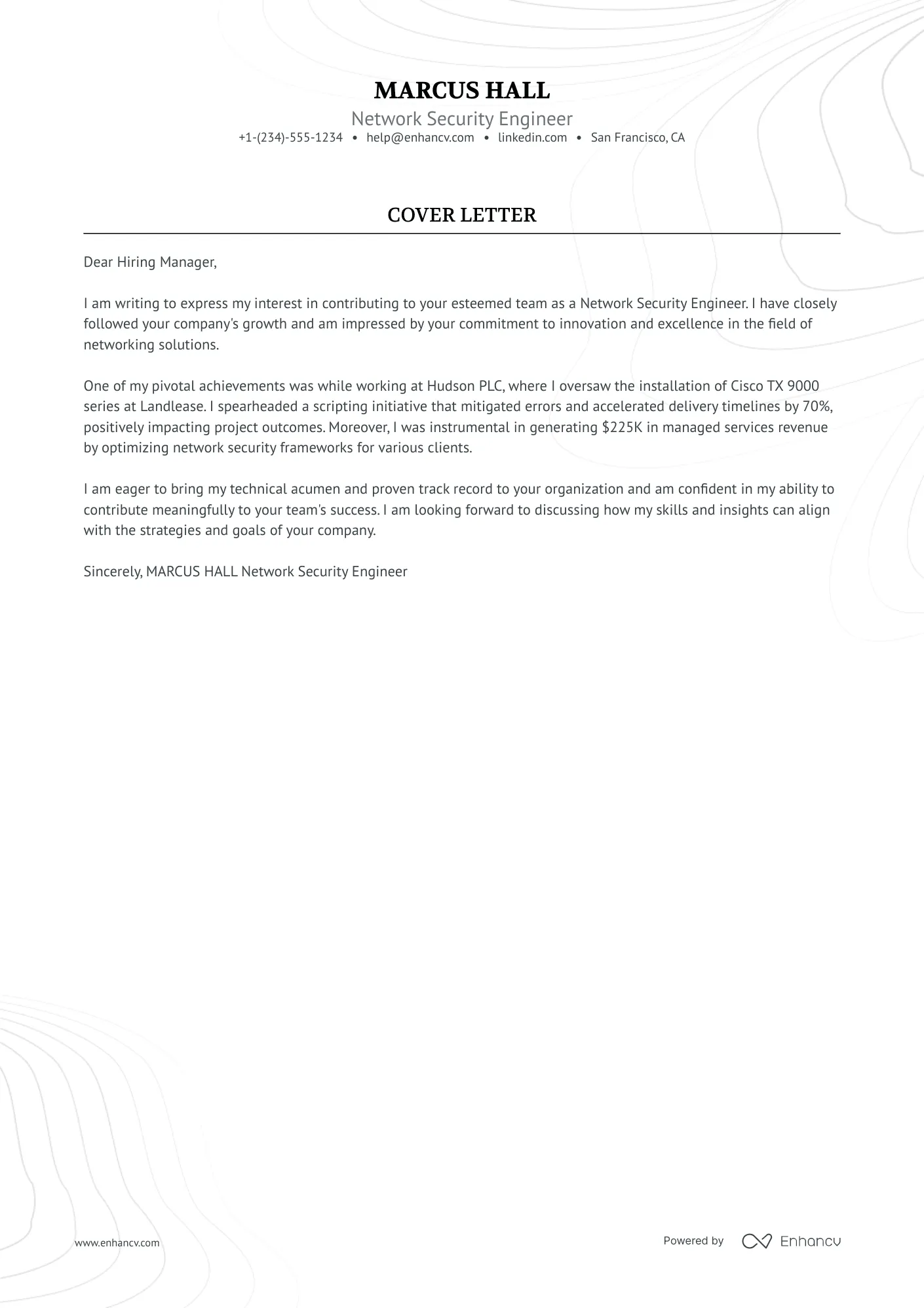
Highlight your technical expertise by listing the specific technologies and tools you are proficient in. Mention your certifications, such as Cisco Certified Network Professional (CCNP) or Juniper Networks Certified Professional (JNCIP). Provide examples of how you have used your technical skills to solve problems or achieve results. This section should provide the employer with confidence in your abilities to perform the job. Show your proficiency in relevant technologies.
Addressing the Employer’s Needs
Tailor your cover letter to address the employer’s specific needs and requirements. Research the company and the role to understand what the employer is looking for. Explain how your skills and experience align with the job description and the company’s goals. Demonstrate that you understand the company’s mission and values, and how you can contribute to their success. Show how your background can address their challenges and needs.
Expressing Enthusiasm and Interest
Convey your enthusiasm and genuine interest in the role and the company. Explain why you are excited about the opportunity and what attracts you to the company. Show that you have done your research and understand the company’s culture and values. Your enthusiasm can set you apart from other candidates. Demonstrate your interest in the company’s culture and goals. This also demonstrates your intent to go above and beyond.
Call to Action
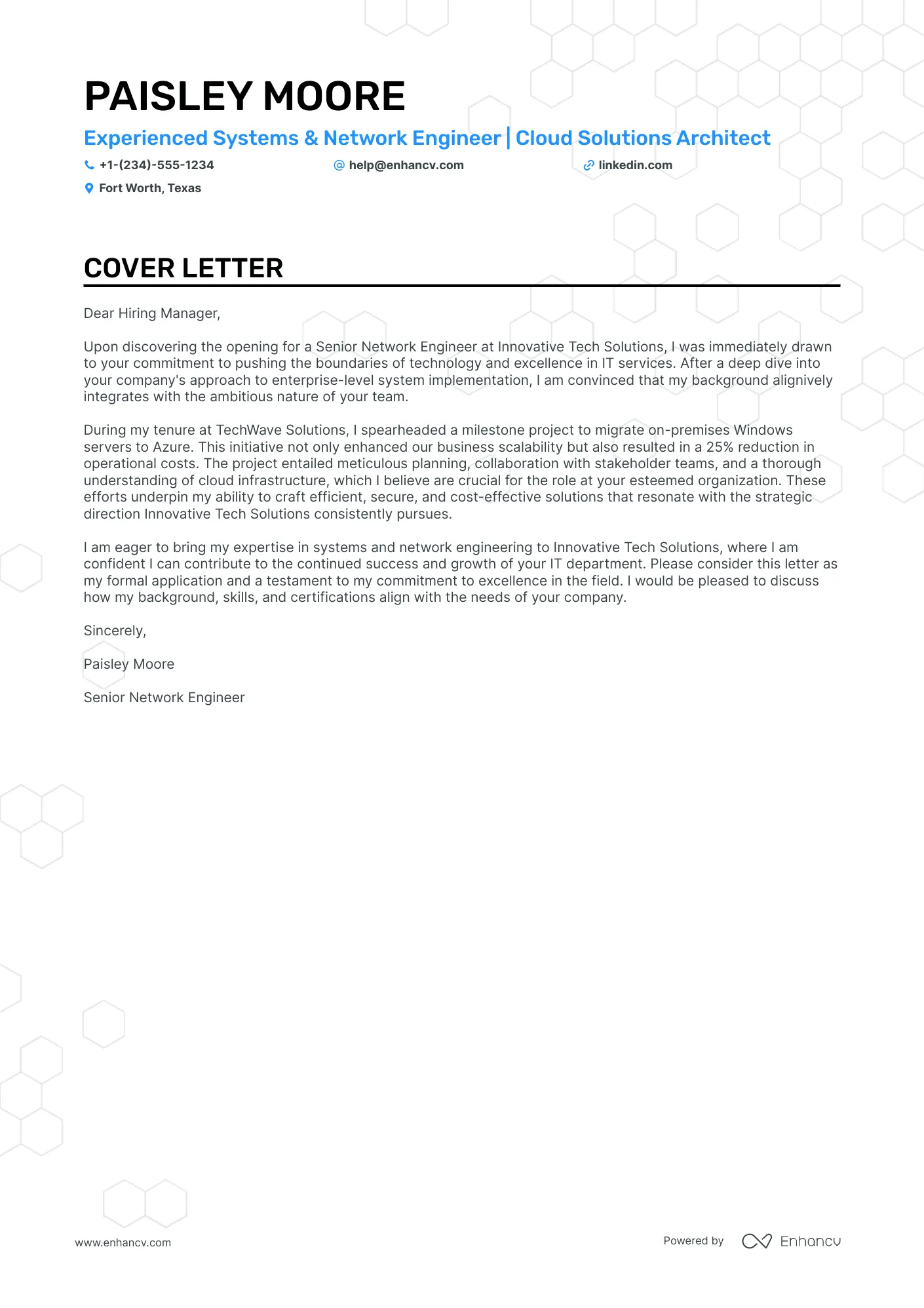
End your cover letter with a clear call to action. Express your interest in an interview and thank the hiring manager for their time and consideration. Provide your contact information again and indicate your availability for an interview. Make it easy for the hiring manager to move forward. Reiterate your enthusiasm. This ensures the hiring manager knows what steps to take next.
Formatting and Proofreading
Ensure your cover letter is well-formatted, easy to read, and free of errors. Use a professional font, such as Times New Roman or Arial, with a font size of 11 or 12 points. Use standard margins and spacing. Proofread your letter carefully for any typos, grammatical errors, or inconsistencies. Ask a friend or colleague to review your cover letter for a fresh perspective. A polished and error-free cover letter demonstrates your attention to detail.
Common Mistakes to Avoid
Avoiding common mistakes is crucial to make a positive impression. Poorly written cover letters can lead to immediate rejection. Review your work before you send it. The hiring manager reviews dozens or hundreds of cover letters and resumes daily. Make sure yours stands out from the rest in a good way. Your cover letter can make or break the hiring process, so keep it simple and concise.
Generic and Vague Statements
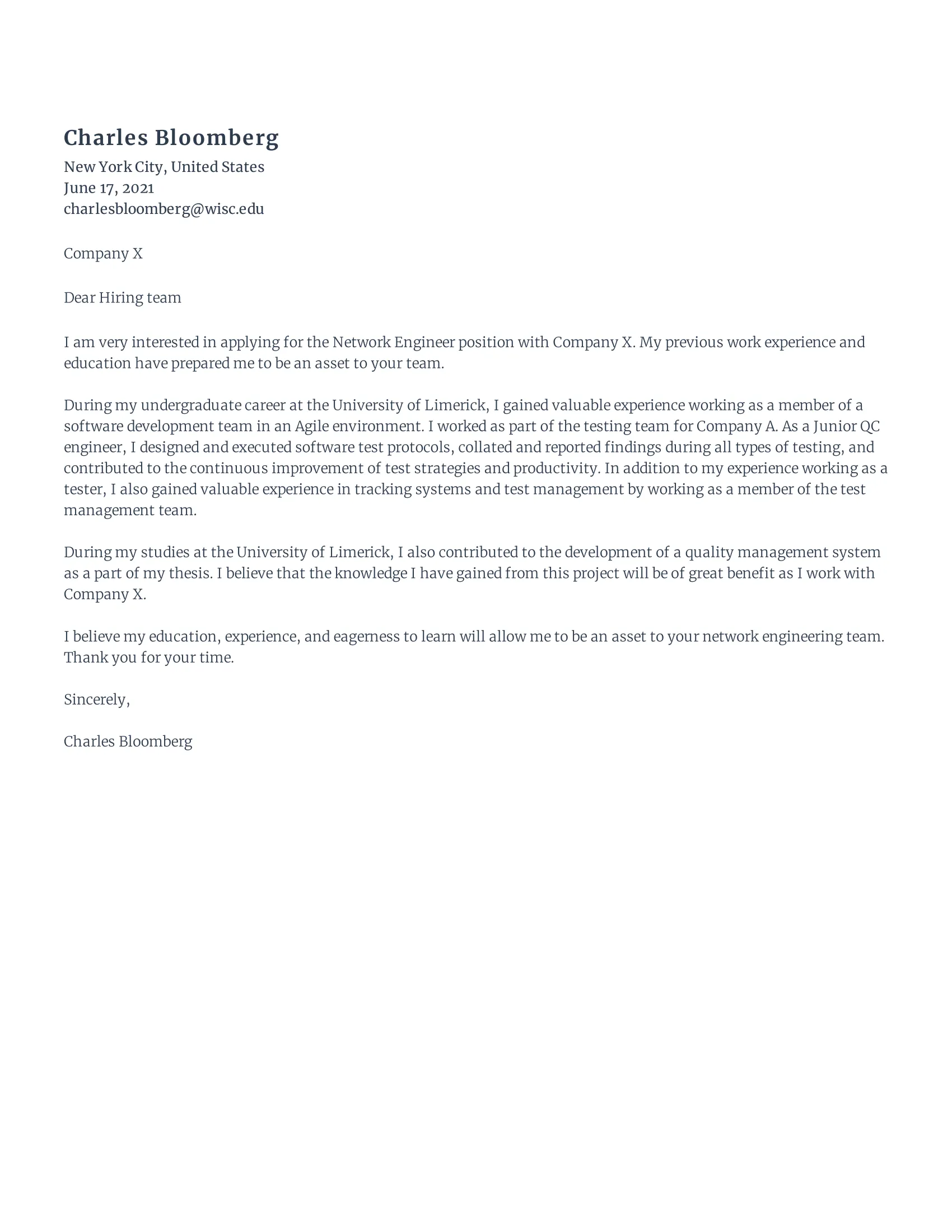
Avoid using generic and vague statements that do not provide specific examples of your skills and experience. Do not use clichés or buzzwords. Be specific about your accomplishments and use quantifiable results. Show, don’t just tell, what you can do. Generic statements do not impress hiring managers and make them question your skills. Provide strong evidence of your qualifications.
Focusing on Self Instead of the Employer
Focusing too much on your own needs and goals, rather than the employer’s, is a common mistake. Your cover letter should demonstrate how you can contribute to the company’s success. Focus on the employer’s needs and the value you can bring to the role. Tailor your letter to the specific needs of the employer. This approach ensures that your letter is focused on how you can help the company.
Typos and Grammatical Errors
Typos and grammatical errors can undermine your credibility and professionalism. Always proofread your cover letter carefully. Ask someone else to review your letter for a fresh perspective. A flawless cover letter demonstrates your attention to detail and commitment to excellence. Typos and grammatical errors send the wrong message to the hiring manager.
Failing to Tailor the Letter
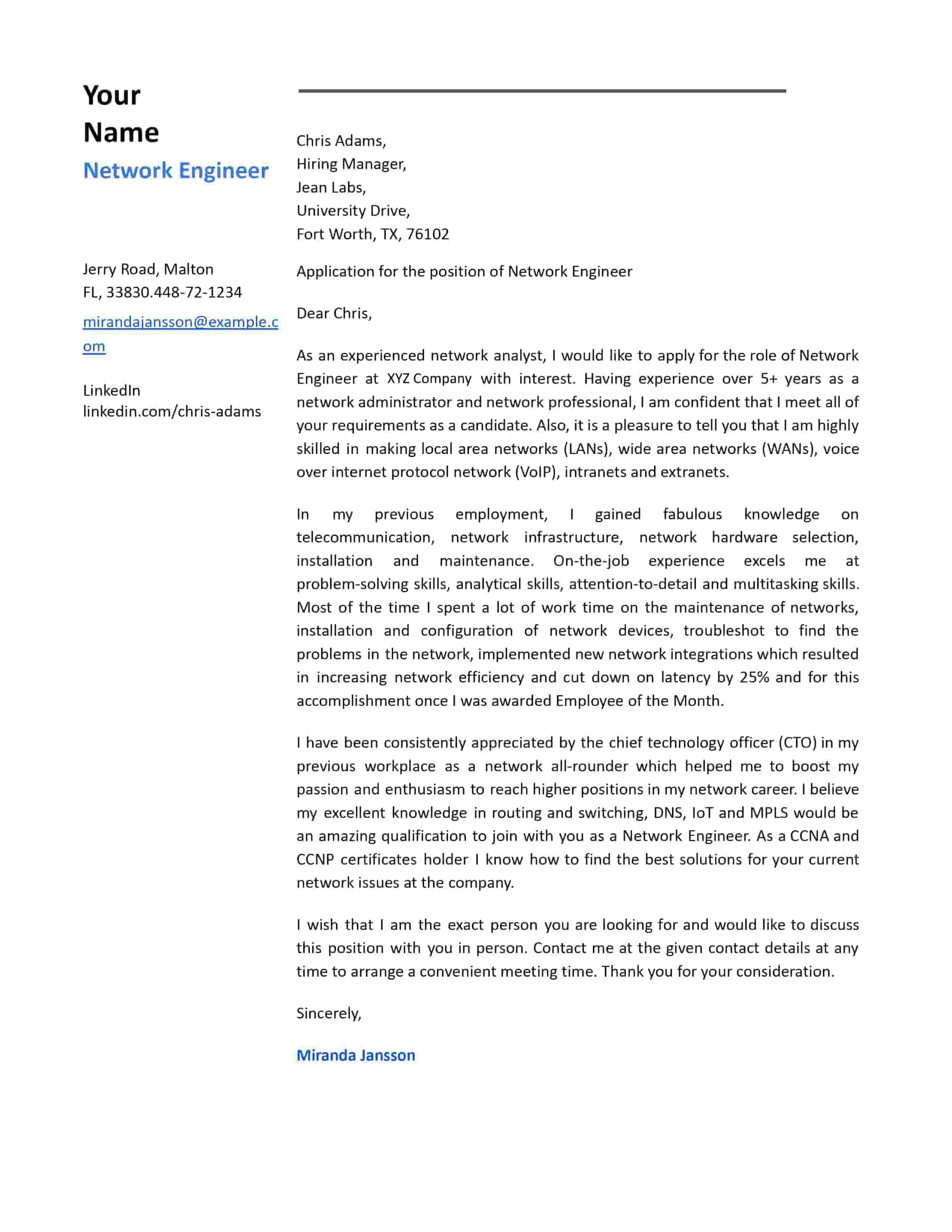
Sending a generic cover letter to multiple companies is a mistake. Tailor your cover letter to each specific job and company. Research the company and the role to understand what the employer is looking for. Show that you have taken the time to understand the company and its needs. A tailored cover letter demonstrates your genuine interest and increases your chances of getting an interview. Customize the cover letter according to the company’s needs.
Examples of Effective Network Engineer Cover Letters
Reviewing examples of effective cover letters can provide valuable insights into how to craft your own. These examples can help you understand the best practices for highlighting your skills and experience. Here are some examples, each with a different focus, to demonstrate how you can customize your letter based on the specific requirements of the job and your own strengths. Using these examples can help make the process easier.
Example 1 Focus on Project Management
This example focuses on a candidate who excels in project management. This cover letter would highlight the candidate’s ability to plan, execute, and oversee network projects. It would also showcase their skills in leading teams, managing budgets, and meeting deadlines. If you have a strong background in project management, this is a good template to follow. Include the specific projects that you have managed and the outcomes. Show your ability to deliver projects on time and within budget.
Example 2 Highlighting Troubleshooting Skills
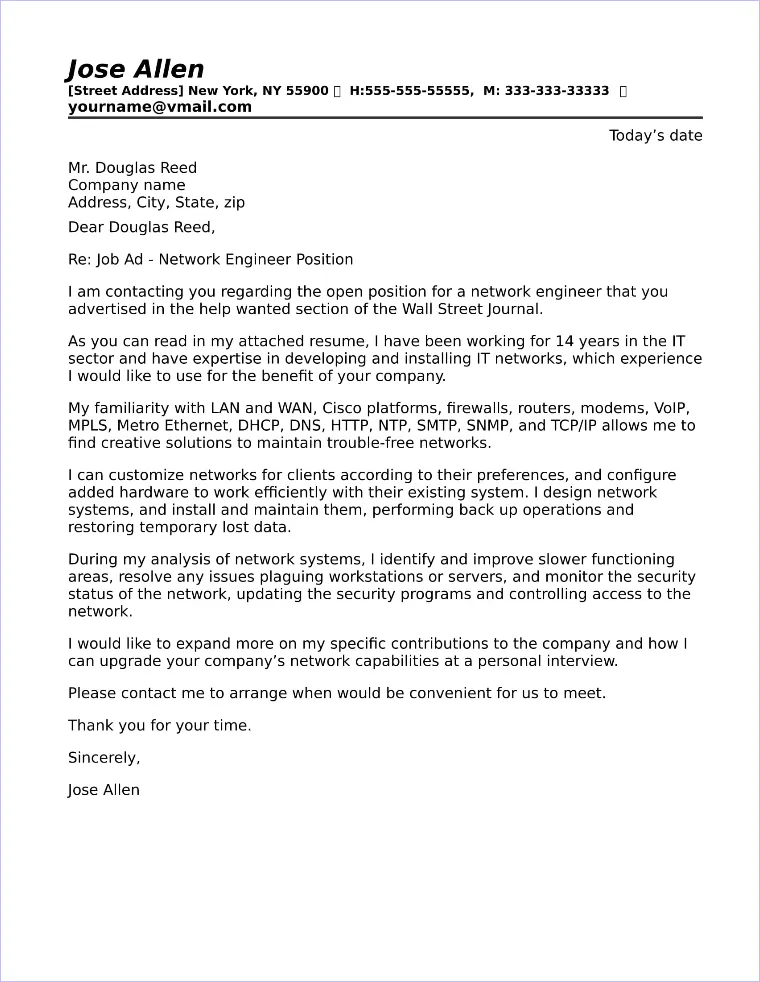
This example focuses on a candidate with strong troubleshooting skills. This cover letter would showcase their ability to diagnose and resolve complex network issues. It would detail their experience with network monitoring tools and their ability to quickly identify and fix problems. It should also mention the specific technologies they’re proficient in. Quantify your achievements and accomplishments with data. This is a useful template to use for people with strong troubleshooting and problem-solving skills.
Example 3 Demonstrating Network Design Experience
This example focuses on a candidate with network design experience. This cover letter would highlight their ability to design and implement new network architectures. It would detail their experience with network planning, configuration, and optimization. Mention your specific skills and experiences that show how you can help the company achieve its goals. Show how you have improved and implemented new designs in the past. This is suitable for people who want to work on the design and implementation side of networking.
